#고추장
Explore tagged Tumblr posts
Text
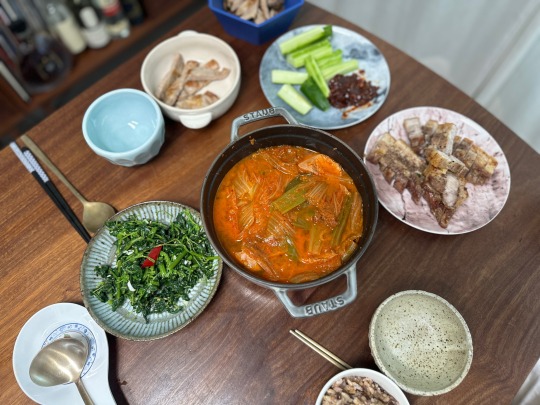
@인왕별장
#food#korean food#저녁#dinner#kimchi#banchan#인왕별장#김치찌개#kimchi jjigae#나물#namul#pork belly#삼겹살#고추장#여름고추장#gochujang
1 note
·
View note
Text
고추장에 이것만 하면 곰팡이 절대 안 피어요!
0 notes
Text
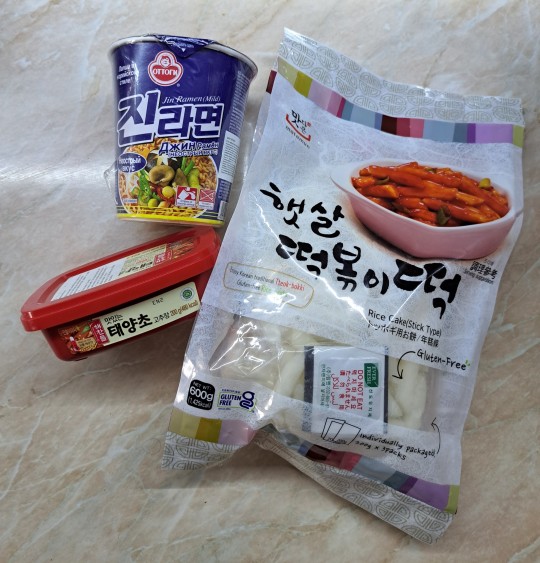
Finally I found some tteokbokki in my country (Azerbaijan) that doesn't cost an arm and a leg!! Yaaay! I used to make my own tteokbokki but it was a real hard work and wouldn't taste as good as the original. So I'm really happy to eat it after a really long while.
I think the increased interest in Korean culture among young adults finally convinced a few businessman to import some good Korean products. Only a year ago it was available in one small store that was a pain in the ass to find in the first place. And tteokbokki they sold was like 20 dollars. In a country where, say, pasta is a dollar, that price is a lot. But yesterday I found a new place and they sell it for about 4 dollars. So I didn't even think twice 😁
And gochujang was for 1.5 dollars.
#I'm so excited to make it for dinner tonight 🤤#i wish we had a asian store#we have some international stores but they don't have wide variety of asian products#korean food#tteokbokki#gochujang#jin ramen#떡���이#진라면#고추장#한식#azerbaijan
0 notes
Text
BITCH IF THIS DOESNT FUCK SO HARD IM GONNA BE SO MAD
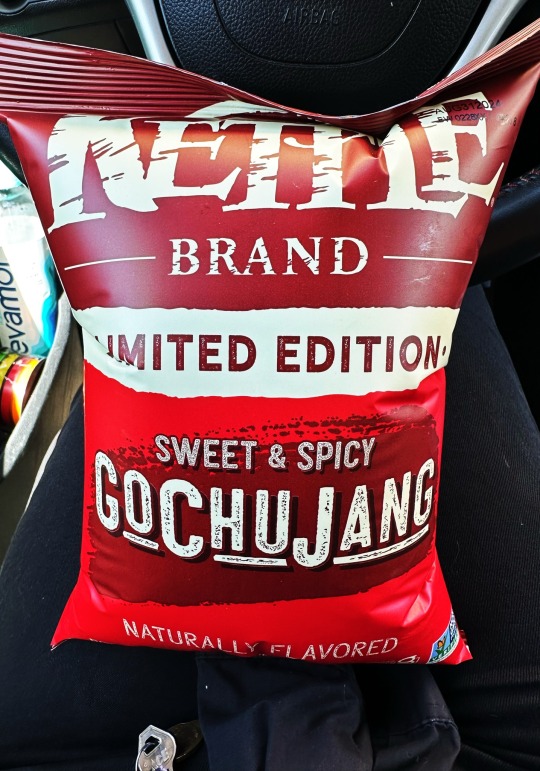
#i won’t know until i get home from work but#i am a 고추장 expert it better live up#apple babble 🍎#non fandom#not expecting much tbh lmAO
6 notes
·
View notes
Text
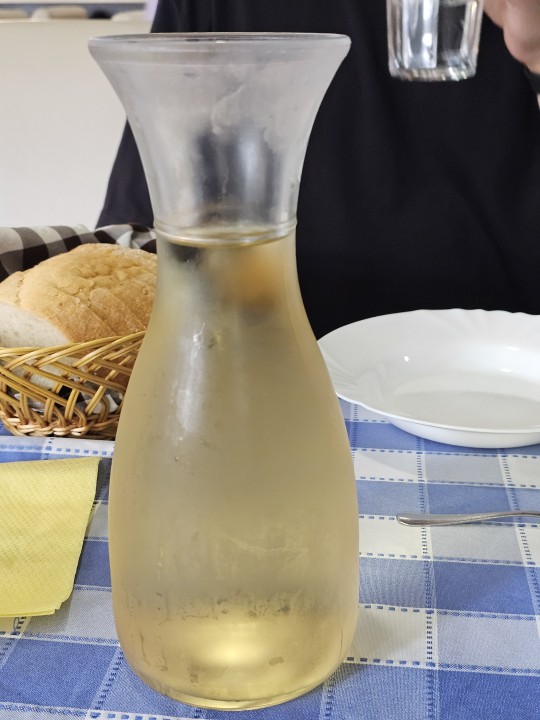
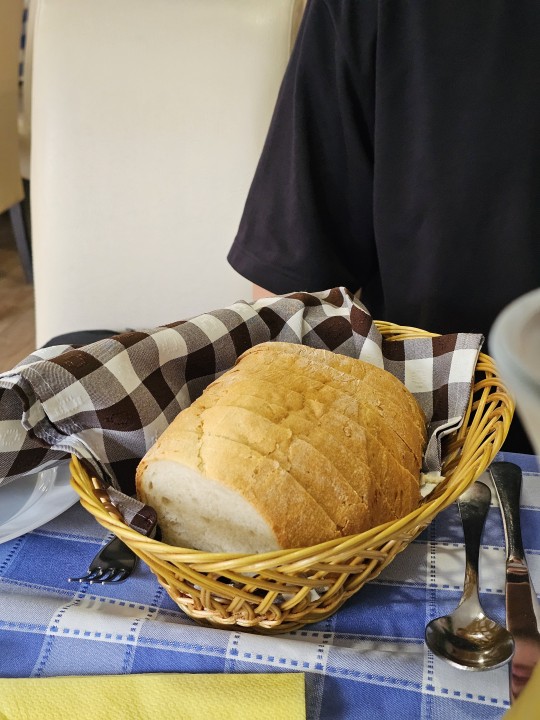
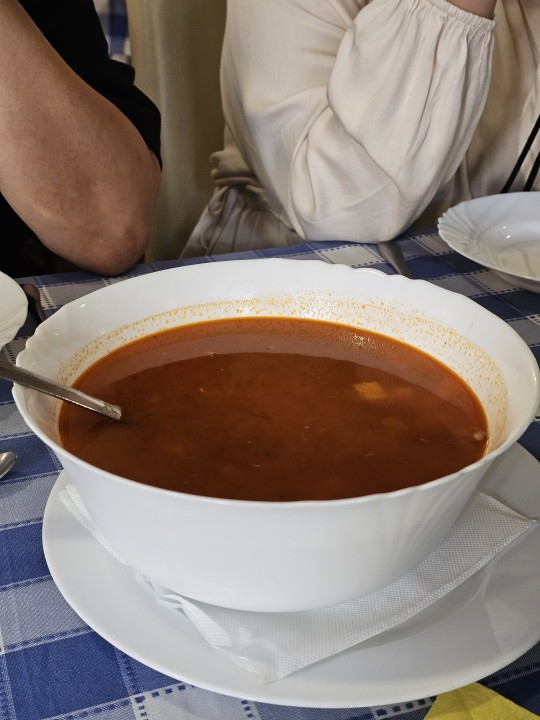
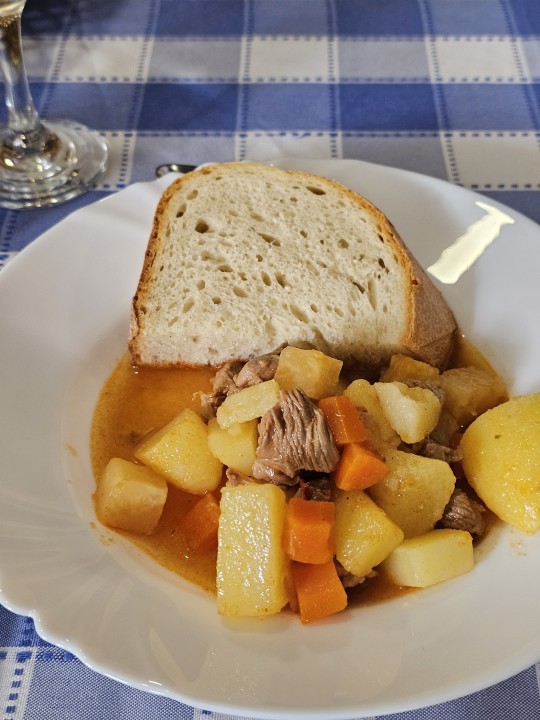
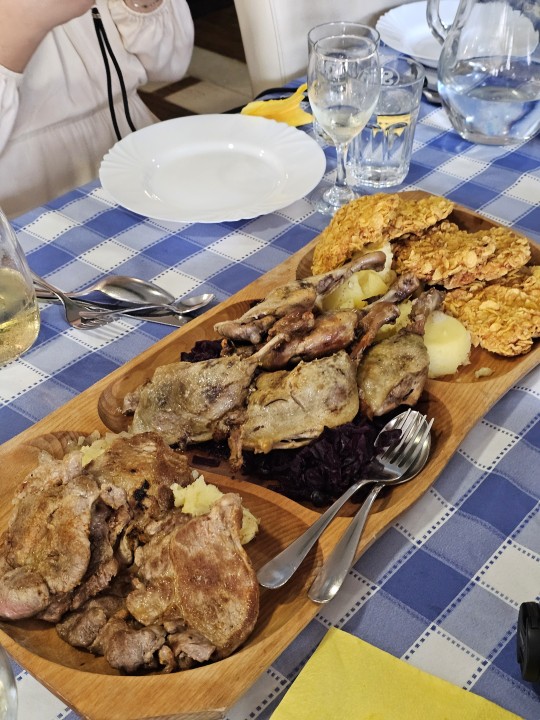
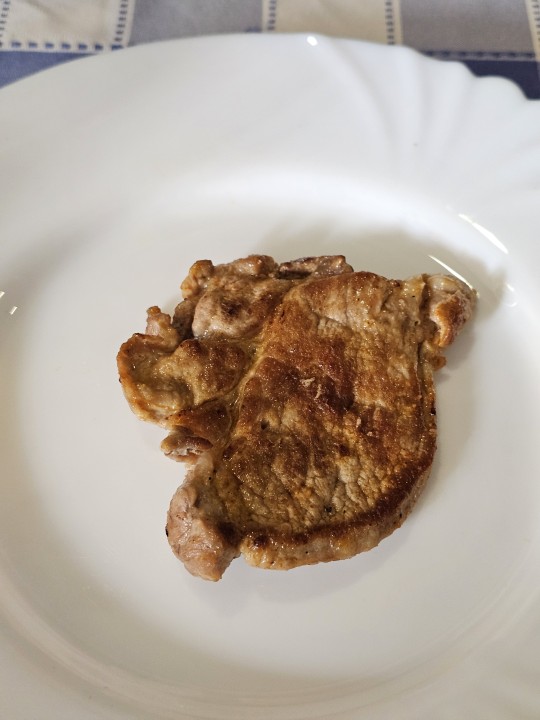
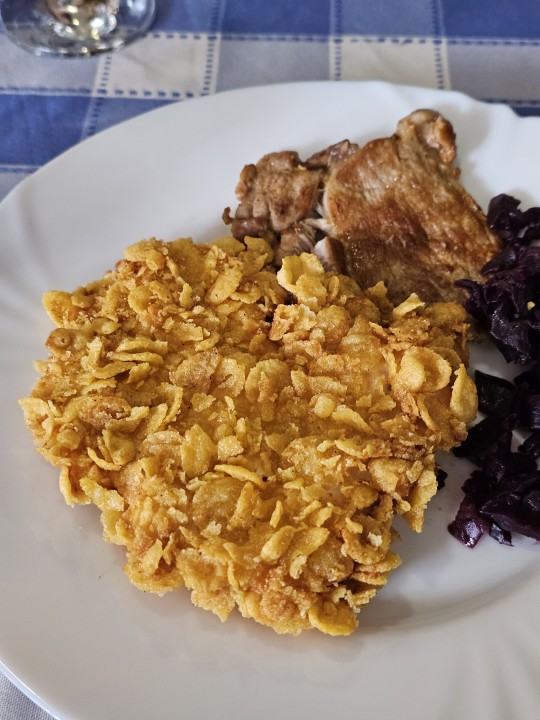
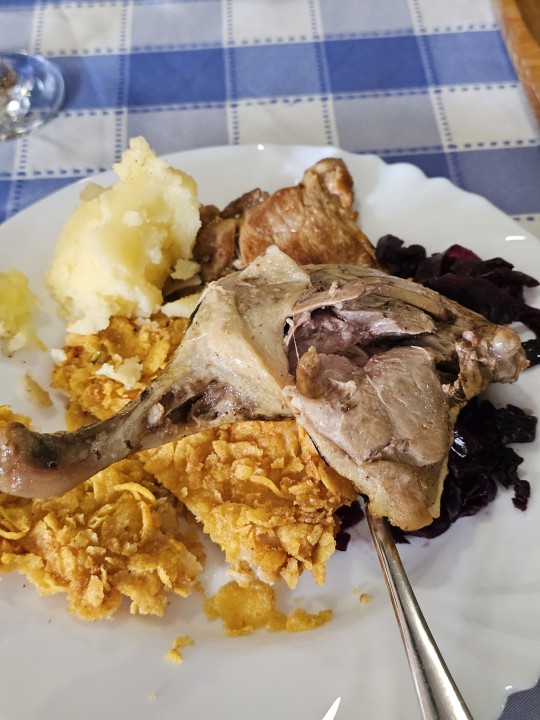


2024.6.11.
부다페스트에서 식사를 했다. 헝가리 사람들은 훈족이 기원이라고 한다. 조상이 아시아계열 사람들이라 유럽에서 파프리카 소비량이 1등이고 아시아 사람들 처럼 성이 앞에 붙는다고 한다.
그리고 처음먹는 유럽음식인데, 우리 고추장 다데기 같은 게 있었다. 그걸 굴라쉬에 넣으니까 한식같은 맛이 나서 정말 신기했다.
이 사람들도 아시아에서 넘어 오긴 했구나. 라는 생각이 들었다.
고기고기한 식사였는데 목살구이, 슈니첼(유럽식 돈까스), 닭다리 구이를 먹었다.
굴라쉬는 제육볶음탕(?!) 같은 느낌이였고 고추 다대기를 넣으니까 한식같아서 신기했었다.
고기고기한 음식은 참 적응이 안된다. 저렇게 고기를 많이 주는데 채소는 감자만 준다.
밥을 먹고 ��쇠크 광장을 갔다. 헝가리 사람들에게 천년광장 혹은 영웅광장으로 불리는 곳인데 천년의 역사동안 헝가리를 일군 대단한 임금님들 동상을 세워놓았다. 그중에 한 분만 장군님이 있다고 가이드가 알려줬는데, 무슨장군인지 기억이 안난다.
그리고 회쇠크 광장 건너는 파리의 개선문 너머와 같은 디자인으로 거리를 만들었다고 한다.
2024.9.10.
요즘 공적서 포상공개검증에 계속 포함이 되지 않는다. 그냥 정부상은 못받아도 좋으니까 장관님이나 위원장님 상장이라도 받았으면 좋겠다.
87 notes
·
View notes
Text

https://mykoreankitchen.com/three-ultimate-korean-bbq-dipping-sauces/
Three Ultimate Korean BBQ Dipping Sauces
Ssamjang with Maple Syrup and Pistachio Nuts (메이플 시럽 & 피스타치오 쌈장)
Ingredients for 2 to 3 servings
2 Tbsp Korean soybean paste (DoenJang, 된장)
1 & 1/2 tsp Korean chili paste (Gochujang, 고추장)
1 Tbsp sesame oil
3/8 tsp minced garlic
3/8 tsp minced onion
3/4 tsp roasted sesame seeds
3/4 tsp maple syrup
1 Tbsp coarsely chopped pistachio nuts – about 15 to 18 shelled pistachio nuts (You can use other nuts instead if you prefer)
*1 Tbsp = 15ml
Instructions
Combine the ingredients in a bowl, mixing well. Then, portion the mixture into individual dipping plates as needed.
Sesame Oil, Salt and Pepper Sauce (소금 & 후추 기름장)
Ingredients for 1 serving
1 tsp sesame oil
Pinch (Slightly less than 1/8 tsp) of fine sea salt
Pinch (Slightly less than 1/8 tsp) of ground black pepper
*1 Tbsp = 15ml
Instructions
Simply add the listed ingredients directly to a serving plate. If you’re serving a larger group, prepare individual dipping plates for each person instead. (This is how my mum did it at her restaurant – no need to mix a large batch in a bowl.)
Wasabi and Soy Sauce (간장 와사비 소스)
Ingredients for 2 to 3 servings
1 Tbsp soy sauce
1 Tbsp water
2 tsp white sugar
1 tsp white vinegar
A thin slice of onion – to be added in a serving plate
A dab of wasabi paste (from a tube) – to be pasted on the side of a serving plate
*1 Tbsp = 15ml
Instructions
Combine the first four ingredients listed above in a bowl, stirring until the sugar dissolves.
Using a spoon (a 1 Tbsp measuring spoon works well), portion the sauce onto individual dipping plates as needed.
Add the sliced onion to the sauce and place wasabi paste on the side of the plate.
9 notes
·
View notes
Text
1. [어머니가 만들어 주신 반찬], [Side dishes made by mom], [Acompanhamentos feitos pela mamãe]
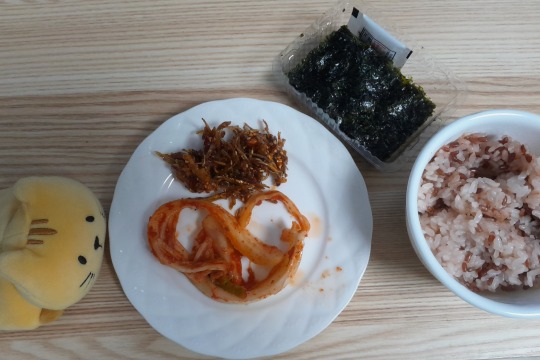
2. [맛 평가], [Taste evaluation], [Avaliação do sabor]
ko: 고추장 멸치 볶음은 달고, 김치도 달다. 하지만 김은 조금 짜다. 그야말로 정말 맛있는 조합이다. 단맛과 짠맛이 잘 조합이 되어 너무나 맛있게 식사를 할 수 있었다.
en: The anchovy stir-fry with gochujang is sweet, and the kimchi is sweet, too. But the seaweed is a little salty. It's a really delicious combination. The sweetness and saltiness go so well together that I was able to enjoy a very delicious meal.
pt [br]: O refogado de anchova com gochujang é doce, e o kimchi também é doce. Mas a alga é um pouco salgada. É uma combinação realmente deliciosa. A doçura e a salinidade combinam tão bem que consegui aproveitar uma refeição muito deliciosa.
3. [영양성분], [Nutritional Information], [Informação nutricional]
(1) 밥
사이즈 [1인분] 200g
열량 220 칼로리
탄수화물 38.96g
설탕 2.30g
단백질 7.28
지방 3.82
포화지방 0.884g
다불포화지방 1.048g
불포화 지방 1.388g
콜레스테롤 66mg
식이섬유 2.8g
나트륨 156mg
칼륨 312mg
(2) 김
사이즈 [1인분] 5g
열량 25 칼로리
탄수화물 2g
단백질 1g
지방 2.3g
식이섬유 1g
나트륨 78mg
(3) 견과류 양념 멸치볶음
사이즈 [인분] 20g
열량 51.2 [1인분]
탄수화물 3.6g
설탕 0.48g
단백질 38.8g
지방 19.24g
포화지방 3.674g
다불포화지방 5.266g
불포화 지방 8.498
콜레스테롤 98mg
나트륨 4696mg
칼륨 724mg
(4) 김치
사이즈 [1인분] 38g
열량 8 칼로리
탄수화물 1.58g
설탕 0.7g
단백질 0.66g
지방 0.12g
포화지방 0.018g
다불포화지방 0.056g
불포화 지방 0.017g
식이섬유 0.5g
나트륨 245mg
칼륨 98mg
---------------------------
(1) Rice
Size [1 serving] 200g
Calories 220 calories
Carbohydrates 38.96g
Sugar 2.30g
Protein 7.28
Fat 3.82
Saturated fat 0.884g
Polyunsaturated fat 1.048g
Unsaturated fat 1.388g
Cholesterol 66mg
Dietary fiber 2.8g
Sodium 156mg
Potassium 312mg
(2) Seaweed
Size [1 serving] 5g
Calories 25 calories
Carbohydrates 2g
Protein 1g - Fat 2.3g
Dietary fiber 1g
Sodium 78mg
(3) Stir-fried anchovies with nut seasoning
Size [1 serving] 20g
Calories 51.2 [1 serving]
Carbohydrates 3.6g
Sugar 0.48g
Protein 38.8g
Fat 19.24g
Saturated Fat 3.674g
Polyunsaturated Fat 5.266g
Unsaturated Fat 8.498
Cholesterol 98mg
Sodium 4696mg
Potassium 724mg
(4) Kimchi
Size [1 serving] 38g
Calories 8 calories
Carbohydrates 1.58g
Sugar 0.7g
Protein 0.66g
Fat 0.12g
Saturated Fat 0.018g
Polyunsaturated Fat 0.056g
Unsaturated Fat 0.017g
Dietary Fiber 0.5g
Sodium 245mg
Potassium 98mg
-------------------------------------------------
(1) Arroz
Tamanho [1 porção] 200g
Calorias 220 calorias
Carboidratos 38,96g
Açúcar 2,30g
Proteína 7,28
Gordura 3,82
Gordura saturada 0,884g
Gordura poliinsaturada 1,048g
Gordura insaturada 1,388g
Colesterol 66mg
Fibra alimentar 2,8g
Sódio 156mg
Potássio 312mg
(2) Algas marinhas
Tamanho [1 porção] 5g
Calorias 25 calorias
Carboidratos 2g
Proteína 1g
Gordura 2,3g
Fibra alimentar 1g
Sódio 78mg
(3) Anchovas salteadas com tempero de nozes
Tamanho [1 porção] 20g
Calorias 51,2 [1 porção]
Carboidratos 3,6g
Açúcar 0,48g
Proteína 38,8g
Gordura 19,24g
Gordura saturada 3,674g
Gordura poliinsaturada 5,266g
Gordura insaturada 8,498
Colesterol 98mg
Sódio 4696mg
Potássio 724mg
(4) Kimchi
Tamanho [1 porção] 38g
Calorias 8 calorias
Carboidratos 1,58g
Açúcar 0,7g
Proteína 0,66g
Gordura 0,12g
Gordura saturada 0,018g
Gordura poliinsaturada 0,056g
Gordura insaturada 0,017g
Fibra alimentar 0,5g
Sódio 245mg
Potássio 98mg
----------------------------------------------------
#food#food pics#breakfast#Mom's side dish#음식사진#음식#엄마의 반찬#Comida#Acompanhamento da mamãe#Café da manhã#fotografia de comida
3 notes
·
View notes
Text
앞집에서 열무김치 담갓다고 맛보라며 주신다 ..
이런건 말이쥬..
꽁보리에 고추장 넣고 팍팍비벼서 먹으면 아주 데끼리쥬..
그래서 비볐씨유.
팍팍 ..
이런건 전투적으로 먹어야 함미당 팍팍 .
청국장은 국룰 ..
#광명전통시장 #광명시장 #전통시장 #추천맛집 #광명왕족발 #광명할머니왕족발 은 #광명소셜상점 #미리내가게 #광명8경 #광명동굴 #광명시 #LocalGuides 와 함께 합니다
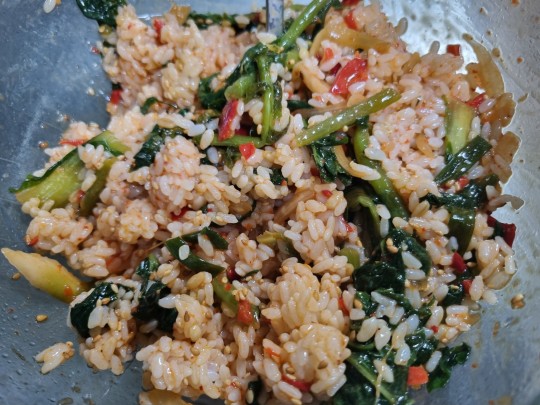
18 notes
·
View notes
Text
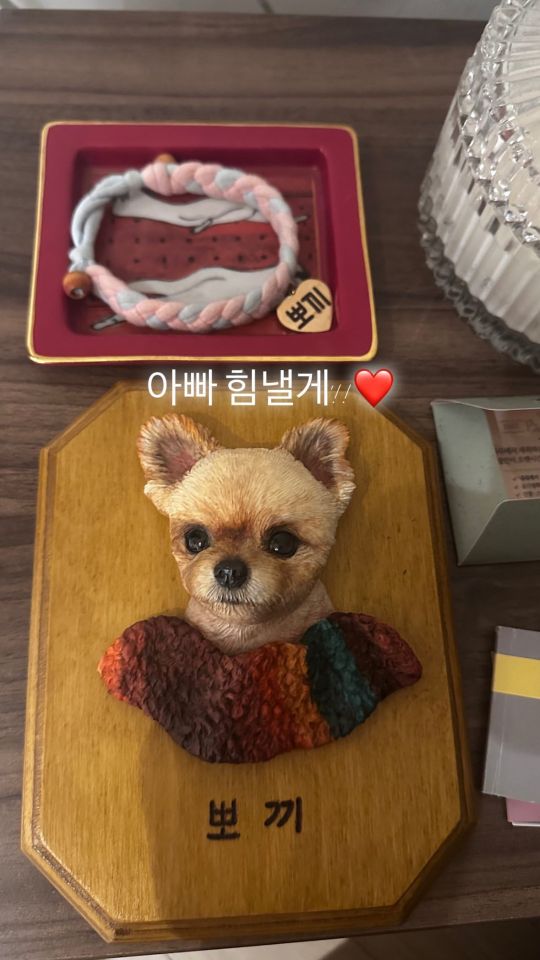
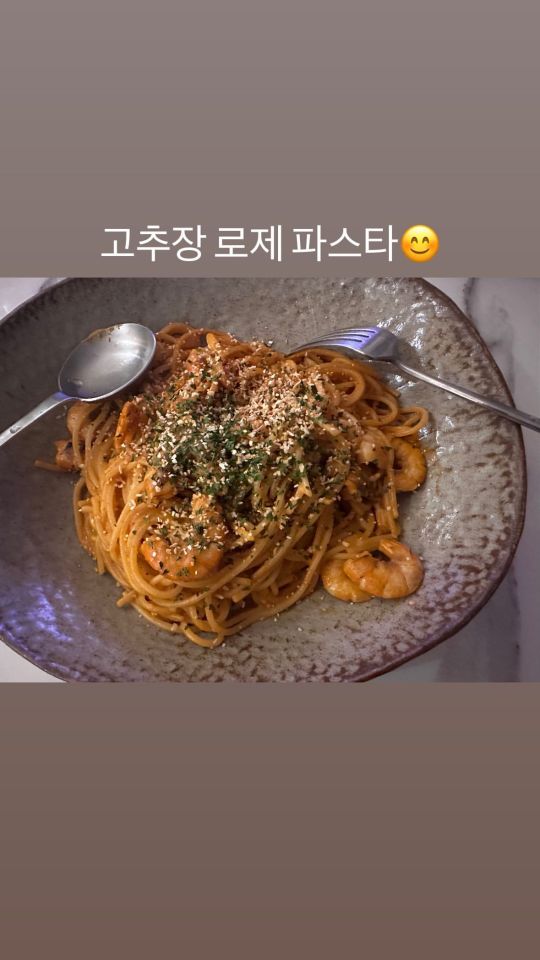
221119 instastory | @leo_jungtw
아빠 힘낼게❤️ Dad will do his best❤️
고추장 로제 파스타😊 Red pepper paste rosé pasta😊*
*he made this while 🫧live
3 notes
·
View notes
Text
골다공증 예방하는 <호박순 된장국>
호박잎 먹는 건 많이들 알고 계시지만
호박순을 먹을 수 있다는 건 모르시는 분들이 많은 것 같아요.
예전에는 호박 농사짓는 사람이나 먹을 수 있는 특수 부위였는데
요즘은 호박순 수확을 위한 품종이 따로 나올 정도로
효능이나 맛이 좋기로 유명해졌습니다.
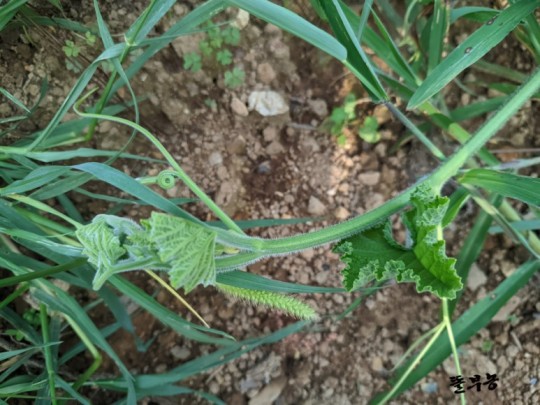
호박순은
호박 줄기 끝에 호박잎이 막 생겨나는 부위이고
그 옆에 뭔가를 감으려고 나오는 덩굴손을
호박손이라고 합니다.
호박손도 임산부들에게 좋아서
말린 것으로 차 끓여 먹는다고 하더군요.
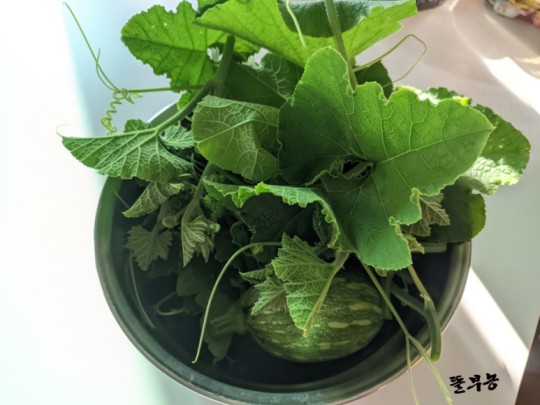
저희 집에도 농사 망한 호박이 있어서
호박은 못 먹어도 이 시기에 호박순은 먹습니다.^^;;
호박잎처럼 호박순도 거친 부분 벗겨내고
물에 박박 주물러 씻어 풋내가 나지 않게 합니다.
쌀뜨물에 호박순 넣고
같이 따온 풋호박도 대충 뚝뚝 썰어 넣고
된장, 고추장, 다진 마늘, 들깨가루 넣어
한 시간 정도 중불에 푹 끓여줍니다.
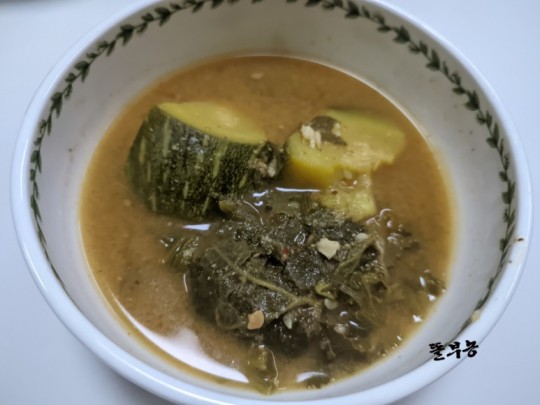
바쁜 하루를 보내고 저녁 식탁에 앉아
뜨끈하고 구수한 호박손 된장국을 먹으면
뭉쳤던 어깨가 다 풀어지는 느낌입니다.
호박이나 호박잎이나 피로 회복에 좋으니 그럴 만도 하지요.
특히 호박잎이나 호박순에는 칼슘도 많다니
시들기 전에 부지런히 먹어둬야겠습니다.
5 notes
·
View notes
Photo
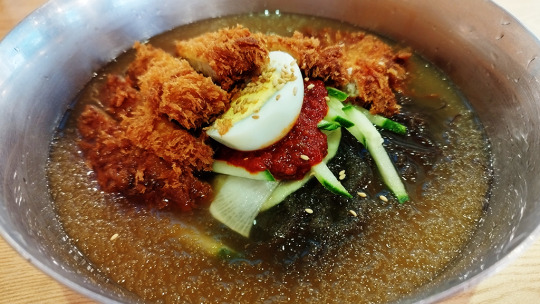
"돈냉면"
이번 주 특이사항은, 화요일(2023.4.18)은 선선했다가 다음 날 갑자기 기온이 28도까지 치솟음. 그 때문인지는 모르겠으나 인터넷 커뮤니티에 때 이른 냉면 얘기가 두어 편 올라옴. 그중 하나가 '돈까스 + 냉면 = 돈냉면'. 몇 년 전에 둘을 함께 먹는 괴식성을 가진 사람이 있단 걸 알긴 했지만, 설마 그사이 본격적인 식당 메뉴로 등극(?)했으리라곤 예상 못 함. 이태리 애들이 파인애플 피자만 보면 기겁하듯, 이 또한 괴랄하기 짝이 없지만 그래서 더 궁금한 것...
지도 검색하니 마침 집에서 가까운 식당이 있길래 일부러 찾아가 먹어 봄. 내가 간 곳은 홍대 동아냉면처럼 고추장 얹은 물냉면 위에 돈까스를 올려놨다. 일단 고추장이 잘 퍼지게 한 후 돈까스를 국물에 푹 담금. 냉면 두어 젓가락 먹은 뒤 돈까스 한 입 배어 먹은 소감은 "Why???"였다.
둘을 함께 먹음으로써 제3의 맛을 창조했다면 납득할 텐데 그런 게 없다. 그냥 누구나 다 아는 돈까스 맛, 냉면 맛일 뿐인데 굳이 왜 섞어 먹는 거지? 짐작건데 짬짜면처럼 둘 다 먹고 싶은 누군가가 시험 삼아 섞어 봤거나, 가츠동을 한국식으로 우라까이 했거나, 물냉면에 실수로 돈까쓰 떨어뜨렸다가 아까워 먹어 보니 의외로 먹을만 했다거나? 암튼 꼭 이렇게 먹어야겠다면 딱히 더 할 말은 없다는... 개인적으론 '민트초코'라 쓰고 "치약초코"로 읽히는 그 맛 좋아하는 분들도 존중하는데, 이 정도는 뭐...
2 notes
·
View notes
Text
in ASCII each letter is a byte, and “gochujang” has 9 letters, so 3 TB of gochujang is “gochujang” repeated about 333 billion times.
to use Hangul, you need another encoding. in UTF-8 you need 3 bytes to encode Hangul, and “gochujang” is 3 characters (“고추장”—according to Google, I don’t speak Korean), so that’s still 9 bytes.
if you use UTF-16, each character is 2 bytes, so you can get away with 6 bytes! this means 3 TB of gochujang is “고추장” repeated 500 billion times.
Of course, you could always make your own 1-bit encoding where 1 represents gochujang and 0 represents no gochujang. Then 3 TB of gochujang would be gochujang (i.e. 1) repeated 24 trillion times. That seems like the best gochujang for your gochujuck.

legally obligated to post this every time i use it
9K notes
·
View notes
Text
CJ제일제당, 비비고 K-소스∙치킨∙핫도그로 유럽 포트폴리오 확대
유럽에 출시하는 CJ제일제당 비비고 고추장, 쌈장 제품. CJ제일제당이 유럽에서 비비고 글로벌전략제품(GSP)을 중심으로 신제품을 잇따라 선보이며 현지 사업 확대에 속도를 내고 있다. CJ제일제당은 해외 시장을 타깃으로 짜서 쓸 수 있도록 개발한 ‘비비고 고추장∙쌈장’을 유럽에 출시한다고 25일 밝혔다. 현지화 제품을 앞세워 한식 장류, 이른바 ‘K-소스’에 대한 글로벌 소비자 경험률을 높인다는 전략이다. 해외용 ‘비비고 고추장∙쌈장’은 다양한 해외 현지 식문화를 반영한 것이 특징이다. 해외 소비자들은 튀김 요리를 케첩이나 머스타드 소스 등에 찍어 먹거나(디핑소스) 샐러드나 타코에 드레싱, 핫소스 등을 뿌려 먹는(드리즐) 취식 형태에 익숙하다. CJ제일제당은 이 점에 착안해 신제품을 디핑∙드리즐 소스와…

View On WordPress
0 notes
Text
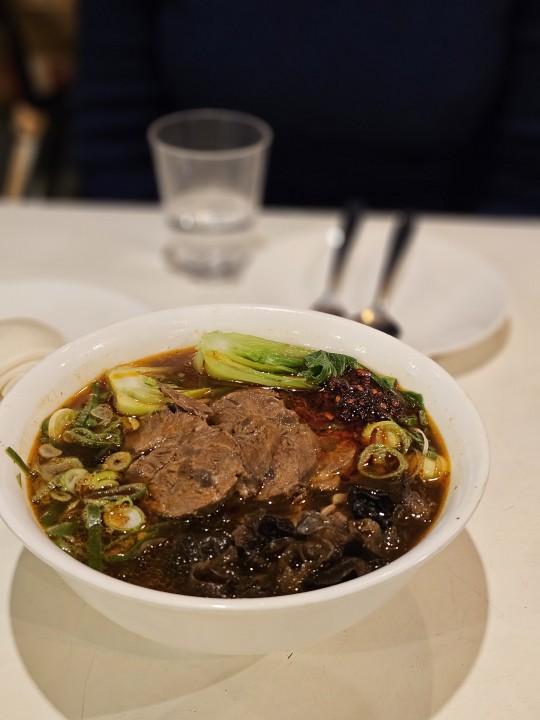
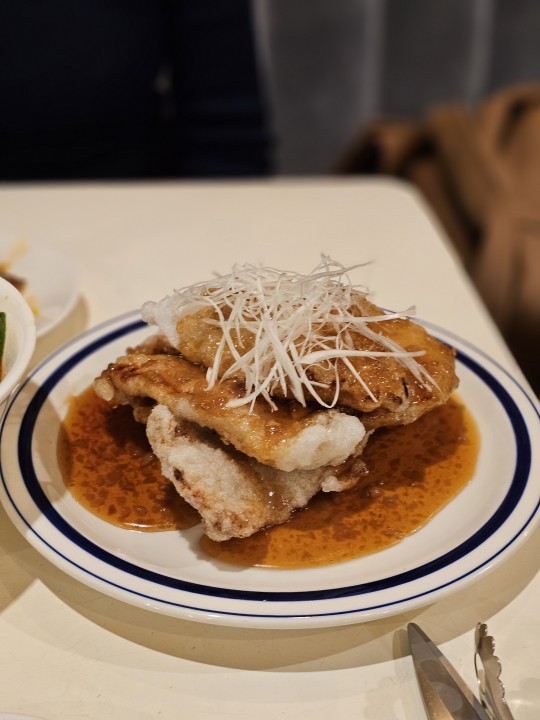

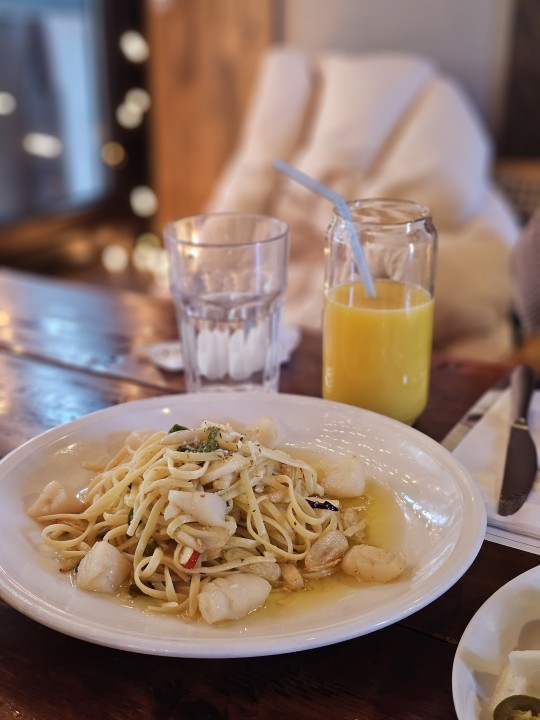
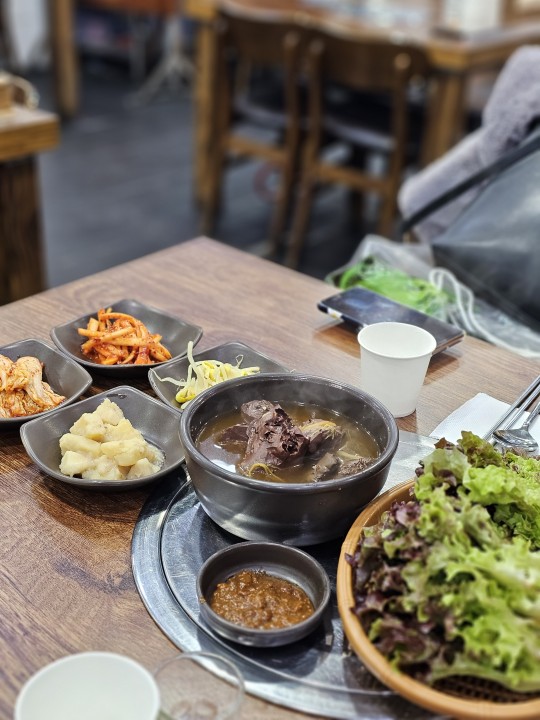
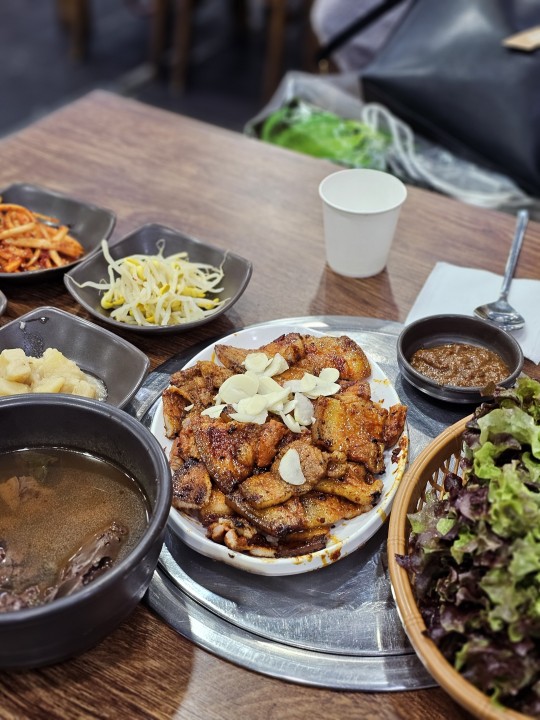
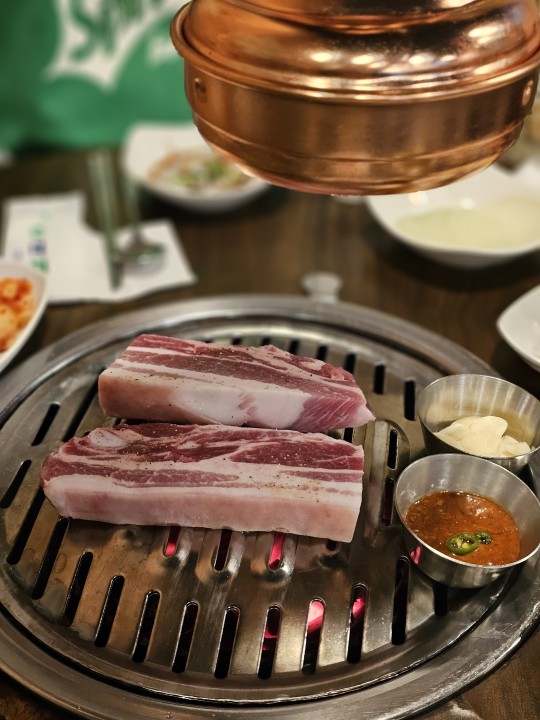

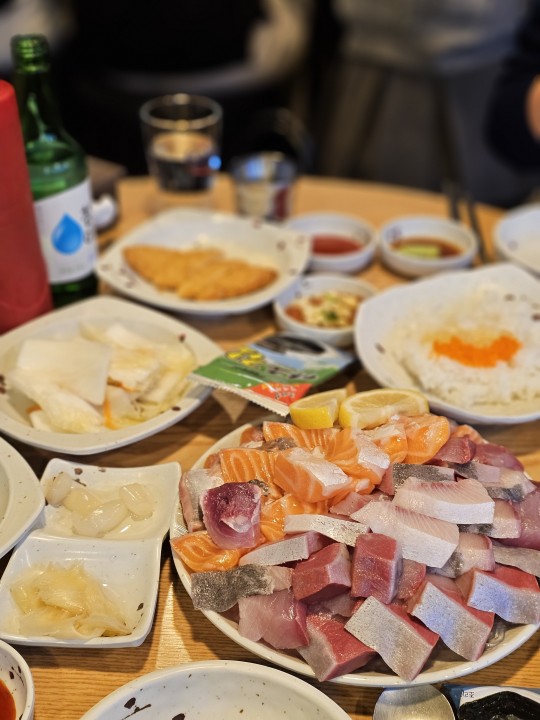
2024.2.9.
실적보고서 쓰고 있을때라 주말 저녁에 강남에 뒷골목의 식당에서 우육탕면과 꿔바로우를 먹었었다.
2024.2.12.
그녀와 돈암동에서 피자를 먹었다. 가장 좋아하는 피자집이다.
2024.2.17.
광화문에서 백종원의 고추장 불백을 먹었었다.
2024.2.24.
고대에서 고기도 먹고 인형뽑기도 하고 즐거운 하루였었다.
2024.3.1.
마지막 방어철이 가기전에 그녀와 홍대에서 방어를 먹었다.
몇달이 지나서 그녀와 무슨 이야길 잘 나눴는지 기억이 나지 않는다만, 그때도 보고서 마감으로 바쁠 때였고 틈틈히 우린 만남들 가져갔었다. 그리고 스펀지밥 인형을 GS에서 사서 기분이 너무 좋았었다.
2024.7.19.
요즘은 비교적 비시즌이라 한산한 편이다. CCM 우수기업 공적서를 작성하고 있다. 올해 최대한 많은 대외 수상을 해보려고 한다. 그리고 매경에서 불공정거래, 납세, 산재 등 관련 자료 조회해간다고 자료를 제출했다. 이번에 잘 되면 좋겠다. 어서 올해 행안부 결과가 나오고 손을 털고 싶은데, 요즘 따라 CEO가 부쩍 잘 해준다. 전보 발령이 아사리판이 나나 싶기도 하고. 정말로 열심히 했는데, 열심히 노력한 게 다 물거품이 되는 거 같아서 안타깝지만 내년을 위해서 열심히 해야하니까 어서 결과도 나오고 부서도 거취가 나오면 좋겠다.
매년 1년짜리 보직이라고 생각하고 쏟아 붓는 게 참 힘들다.
80 notes
·
View notes
Text
비빔국수 두가지 버전




2024/11 비빔국수 양념 레시피를 한병은 마카롱여사님, 다른 한병은 급식대가님 것으로 미리 만들어놓고, 종종 국수에 말아먹었다. 엠여사님 레시피는 재료는 이것저것 많이 들어가는데 (맛간장에 화이트 발사믹 식초에.. 참기름에.. 굳이 이렇게까지 해야하나 싶었음) 딱히 기억에 남는 맛은 아니었고, 그냥 평범한, 매운 국수의 느낌인 반면 급식대가님 레시피는 매실에서 오는 단맛이 강해 아이들먹기에 좋은.. 그러나 둘 다 내가 원하던 비빔국수는 아니었음. 다음에는 무조건 김칫국물이 들어가야 할 듯. 엠여사님 레시피: (단위는 따로 명기하지 않는 이상 Tbsp): 고운 고추가루 3, 설탕 2, 소금 1 t, 식초 6, 화이트 발사믹 2, 맛간장 2, 고추장 2, 참기름 3, 배음료 300 ml, 통깨 3, 후추 급식대가님 레시피: 배음료 2, 매실청 2, 식초 2, 물엿 2, 고추장 2, 설탕 1, 다진마늘, 깨
0 notes
Text
초간단 김치볶음밥 만들기
재료
잘게 썬 신김치 1컵
밥 1공기
대파, 다진 마늘, 고추장, 참기름, 계란
만드는 법
팬에 식용유를 두르고 대파, 다진 마늘로 파기름을 낸다.
김치를 넣고 볶다가 고추장을 추가.
밥을 넣고 골고루 섞으며 볶는다.
참기름을 둘러 완성 후 계란프라이를 올린다.
맛있게 드세요! 😋
0 notes